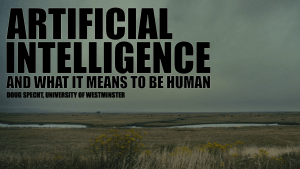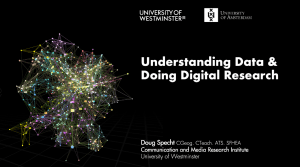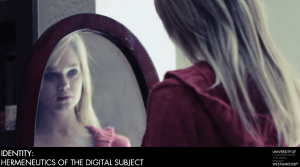I have delivered a wide range of guest lectures, supervisions, and workshops at universities across Europe. Below are some examples of this work, all of which can be booked as a standard lecture, or adapted to suit your course or module. Further bespoke guest lectures and workshops based upon my research and teaching in geography and communication studies can be arrange upon request.
First delivered at: University of Amsterdam
Ethics is becoming an increasingly important area of consideration when working with geographic data. Concerns over privacy, ownership of data and how data is used form part of project planning to all aspects of data use but are particularly acute in relation to development and humanitarian projects. As we rely more on geographic data, such as that collected through social media or open-source satellite imagery, we are presented with a growing list ethical issues. This talk will grapple with these ethical questions, through the examination of a series of case studies, the SDGs and national and international frameworks.
First delivered at: Kings College London
This lecture takes a philosophical look at what we mean by artificial intelligence and how our understanding of different intelligences can alter own understanding of what it means to be a human. The lecture starts with a discussion on the word of Ada Lovelace, and brings us towards new understandings through the work of Brian Eno, Nick Cave, and numerous media artefacts.
First delivered at: University of Amsterdam
In this session we will introduce some key ideas related to undertaking research using digital methodologies. Starting with an exploration of how data can be harnessed to enhance International Development projects, this session will provide an opportunity to collect datasets from Twitter related to students’ research interests. Using this data and other examples, a more critical lens will be applied that highlights some of the limits of data driven research, and its implications for the development sector.
First delivered at: Plymouth Marjon University, Plymouth, UK.
This lecture, which was aimed at training teachers, explored the importance of undertaking research as we teach. The lecture covered undertaking overt research with students such as through the use of feedback practices, interviews and surveys. It also explored the way in which everyday research can take place in an informal way through the data collected about our students through their learning and a school’s record keeping.
First delivered at: UCL, London
A presentation on critical mapping, as a tool and as a process and in its relation with the contested production of knowledge. This lecture also examined mapping as a remote research methodology when studying human rights, humanitarianism and development studies.
First delivered at: University of Arts London
This highly hands on workshop series (3 – 10hrs) explore the politics, philosophy and ethics of mapping and data usage. Students explore a wide range of data sets using tools such as MapBox and QGIS to help them understand the importance of data collection, visualisation and representation. Live data helps to bring these topics to life, and leaves the students with a wide range of visualisation skills that are applicable to other projects.
First delivered at: Kings College London
We might ask ourselves what makes a person the person they are? Is it the clothes they wear, the way the walk, the friends they have? What happens to past versions of ourselves that we can’t remember? And, key for studying the media, do people look at us the same way we look at ourselves? Hannah Arendt, a German philosopher, suggested that ‘nothing and nobody exists in this world whose very being does not presuppose a spectator’ – In this lecture we examine what it means to be a digital subject, and how our digital world changes our relationship with ourselves and each other.
First delivered at:American University of Rome, Italy
Accurate information is a basis for effective policy-making, yet data is far too often understood as empirically incontestable. This apparently evidence-based analysis can obscure more than it reveals. This lecture will examine how data is mobilized in data visualization on issues of social change in ways that serve ideological agendas. Specht will begin by examining how images work with a re-contextualization of impressionist art. A critic of Cézanne declared that his artwork was nothing more than an ugly untruth, a deliberate distortion of nature. Using this notion as a starting point, this lecture questions how data visualization illustrates trends and presents truth claims, through the privileging certain perspectives and, importantly, the rejection of others. Through a number of examples he will develop the concepts of digital-positivism, datawash and darkdata as critical tools for approaching the communication of data, putting forth the idea that we could avoid the obfuscations of data by understanding that its voids are political and that these voids might help us more clearly see power and ideology in data.
First delivered at: University of Reading
Drawing upon research in Central and South America this lecture examines the role of the extractive industries in shaping the social and economic conditions of peoples lives. The lecture explores how maps and data are used to legitimise the extraction of raw materials from the global south in order to enrich the north. The lecture also examines the way in which these same maps and data might be used to counter these narratives and serve as a point of resistance.




